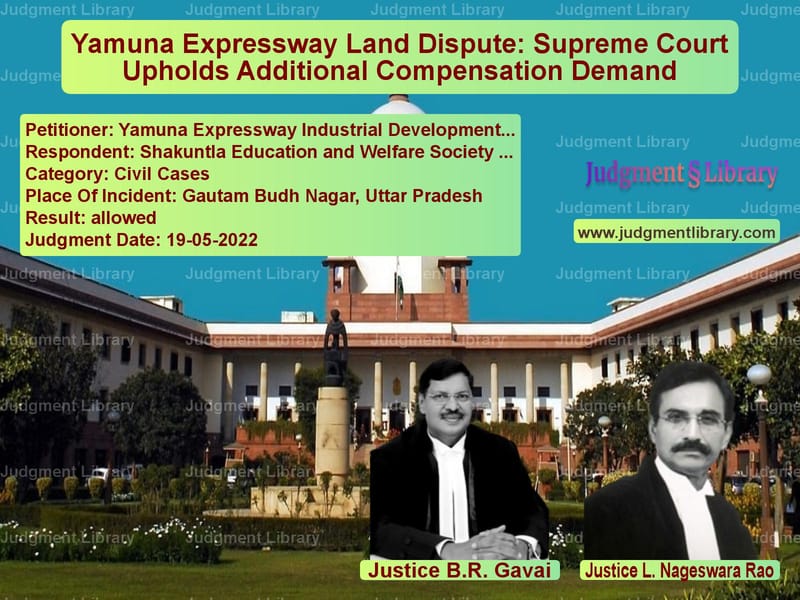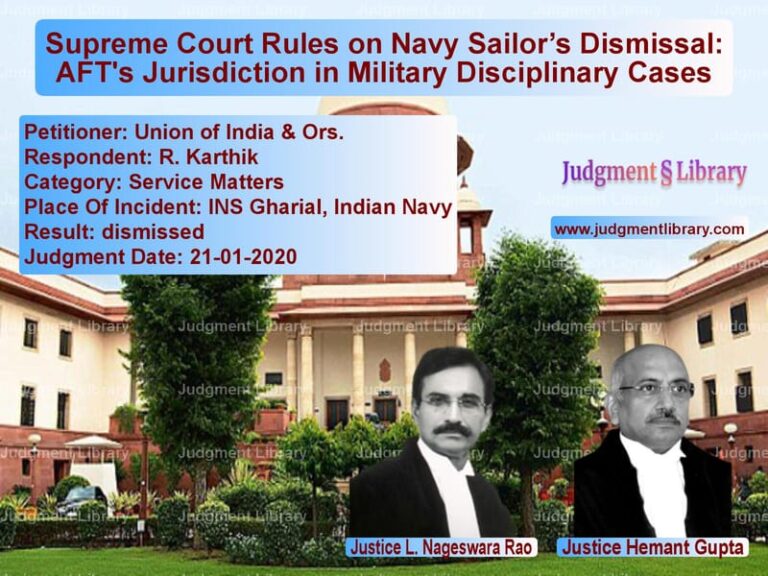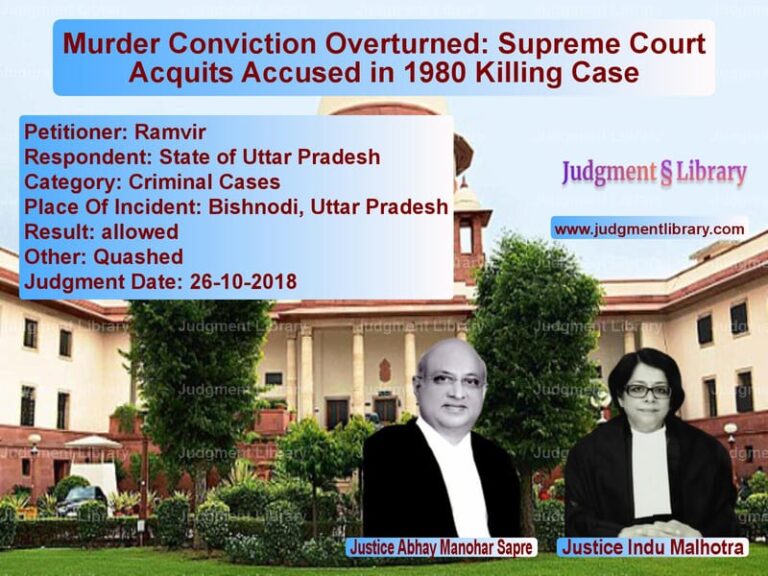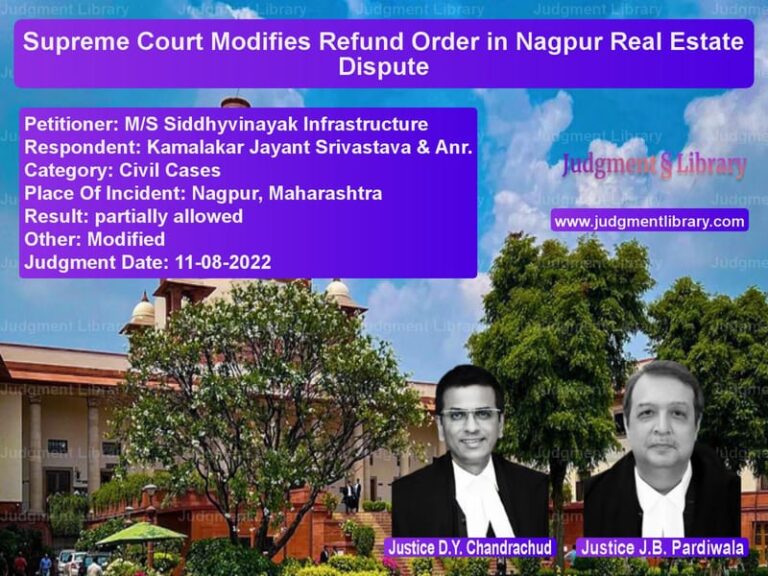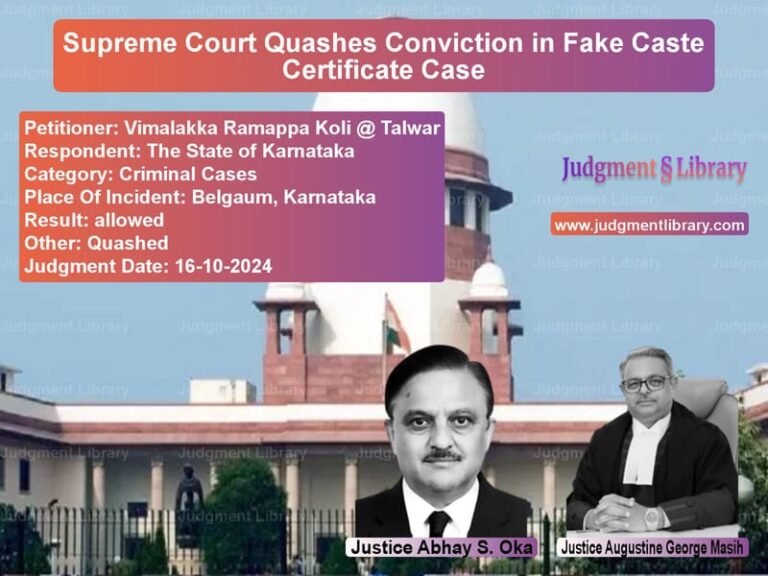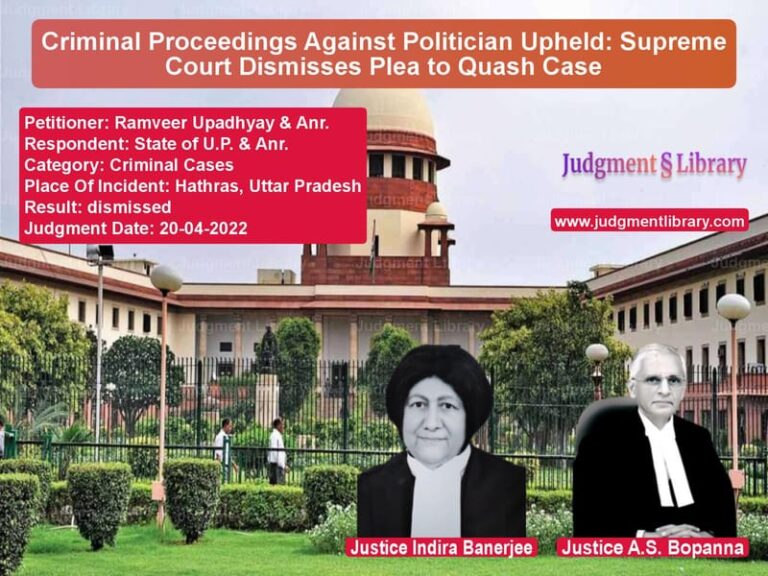Yamuna Expressway Land Dispute: Supreme Court Upholds Additional Compensation Demand
The case between Yamuna Expressway Industrial Development Authority (YEIDA) and Shakuntla Education and Welfare Society & Others centered on whether YEIDA could legally demand additional compensation from allottees of plots for land acquired in Gautam Budh Nagar, Uttar Pradesh. The Supreme Court ruled in favor of YEIDA, allowing it to recover additional amounts from the allottees.
Background of the Case
YEIDA was established to develop infrastructure along the Yamuna Expressway corridor. To facilitate development, the State of Uttar Pradesh acquired vast areas of land in Gautam Budh Nagar for public purposes. YEIDA subsequently allotted plots to various individuals and organizations, including the respondents in this case, under lease agreements.
Initially, the lease premium for land was fixed at Rs. 1,055 per square meter. Allottees, including educational institutions like Galgotias University, entered into lease agreements, paying the required amount. However, following legal disputes in the Gajraj case (2011) where the Allahabad High Court ordered additional compensation to be paid to farmers, the government implemented a policy extending similar benefits to farmers whose land had been acquired for YEIDA.
As a result, on September 15, 2014, the Board of YEIDA passed a resolution requiring allottees to contribute to the 64.7% additional compensation paid to farmers. This led to a demand notice being sent to various allottees, including a demand of Rs. 12.14 crore from Shakuntla Education and Welfare Society.
Arguments Presented
Appellant’s Arguments (YEIDA and Uttar Pradesh Government)
- The government decision to impose additional compensation was in the larger public interest to prevent further litigation by farmers.
- The policy was based on the Supreme Court’s ruling in Savitri Devi v. State of Uttar Pradesh, which had upheld additional compensation for land acquisitions.
- The decision to recover additional compensation from allottees was necessary to ensure financial sustainability of YEIDA.
- Allottees were given the option to either pay the additional amount or seek a refund of their deposited amount with interest.
- Several allottees had written to YEIDA acknowledging the issue and agreeing to contribute toward additional compensation.
Respondents’ Arguments (Allottees, Including Shakuntla Education and Welfare Society)
- There was no contractual provision that allowed YEIDA to demand additional amounts after the lease had been executed.
- The government policy and YEIDA’s decision were unfair and arbitrary, violating their vested rights.
- The Gajraj and Savitri Devi rulings applied only to NOIDA and Greater NOIDA acquisitions and did not automatically extend to YEIDA.
- Many allottees had paid the lease premium in full before the policy change, and therefore, additional demands violated the original contract.
- Builders and developers had already passed on costs to homebuyers, meaning further payment would amount to unjust enrichment.
Supreme Court’s Observations
The Supreme Court carefully analyzed the policy decision of the Uttar Pradesh government and its implications. The key observations were:
- Government policy decisions override private contracts: The Court held that state policies, when made in the larger public interest, take precedence over individual agreements.
- Additional compensation was necessary to prevent litigation: Since similar additional payments were made in NOIDA and Greater NOIDA, denying the same to YEIDA farmers would have led to unrest and legal challenges.
- Allottees had acknowledged the issue: Several allottees had initially agreed to contribute, recognizing that delays in development were due to farmer agitation.
- The High Court had erred: The Supreme Court ruled that the Allahabad High Court had wrongly struck down YEIDA’s resolution and government policy.
- The State had followed a transparent process: The government had formed a high-level committee (Chaudhary Committee), consulted stakeholders, and then implemented the policy.
Key Excerpts from the Judgment
The Supreme Court stated:
“The policy decision of the State Government was not only in the larger public interest but also in the interest of the allottees themselves.”
Further, the Court observed:
“When a policy is changed by the State, which is in the general public interest, such policy would prevail over individual rights.”
Final Verdict
The Supreme Court allowed the appeal, ruling in favor of YEIDA. The key conclusions were:
- The Allahabad High Court’s order was quashed, and YEIDA’s policy was reinstated.
- The additional compensation demand was legally valid and enforceable.
- Allottees who had already paid or agreed to pay could not later challenge the policy.
- The government had acted in the best interest of both farmers and developers.
Outcome: The ruling ensures that YEIDA can recover additional compensation, setting a precedent for government policy decisions in large-scale land acquisitions.
Petitioner Name: Yamuna Expressway Industrial Development Authority.Respondent Name: Shakuntla Education and Welfare Society & Others.Judgment By: Justice B.R. Gavai, Justice L. Nageswara Rao.Place Of Incident: Gautam Budh Nagar, Uttar Pradesh.Judgment Date: 19-05-2022.
Don’t miss out on the full details! Download the complete judgment in PDF format below and gain valuable insights instantly!
Download Judgment: yamuna-expressway-in-vs-shakuntla-education-supreme-court-of-india-judgment-dated-19-05-2022.pdf
Directly Download Judgment: Directly download this Judgment
See all petitions in Property Disputes
See all petitions in Landlord-Tenant Disputes
See all petitions in Judgment by B R Gavai
See all petitions in Judgment by L. Nageswara Rao
See all petitions in allowed
See all petitions in supreme court of India judgments May 2022
See all petitions in 2022 judgments
See all posts in Civil Cases Category
See all allowed petitions in Civil Cases Category
See all Dismissed petitions in Civil Cases Category
See all partially allowed petitions in Civil Cases Category

